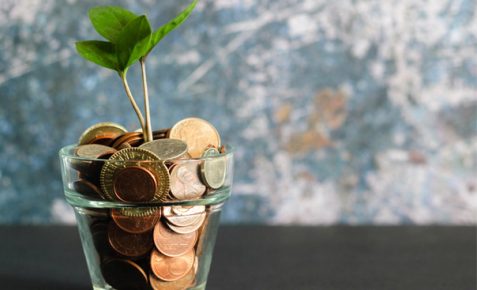What Visa Do I Need to Study in the UK?
Applying to university can be a little overwhelming – especially when you’re looking to study in a different country! If you’re an international student applying for university in the UK, you’ll want to be armed with the best student visa guidance to get started. Fortunately, applying for a student visa is fairly straightforward.
So, in this article, we’ll cover who needs a visa to study in the UK and how you can go about doing it. Let’s jump right in!
What visa do I need to study in the UK?
When it comes down to what visa you need to study in the UK, you’ll be looking to apply for a student visa, which will be the main focus of our post.
However, there are other types of visas on offer that you may be eligible for. These include:
If you intend to study in the UK for less than half a year, you will be able to do this as a visitor. Lots of students don’t require a visa for academic programmes lasting fewer than six months. If you are undertaking a short course in the UK, it’s worth checking if you actually require a visa to study in the UK. If you do, a six-month visitor visa costs £115. Furthermore, if a friend or family member intends to visit you in the UK, they may also be required to apply for a visitor visa.
A short-term student visa is a handy option for those intending to undertake English language programmes between six and eleven months. These visas cost £200.
Individuals aged between four and seventeen may be eligible for a child student visa to study at an independent school in the UK. From outside the UK, this visa type costs £490 – the same as a standard student visa.
Who needs a student visa to study in the UK?
The vast majority of international students need a student visa to study in the UK, enabling each individual to stay and study here for the duration of the university course. If you don’t know whether you require a student visa to study, it is easy to check on the UK government site.
Student visa guidance: what are the requirements for a student visa in the UK?
You are eligible to apply for a student visa to study in the UK if you:
- Are aged 16 or over
- Have been given a place on a programme by a licensed student sponsor
- Can read, write, speak, and understand the English language
- Have the financial means of supporting living and course fees
- Have parental consent if you are aged 16 or 17
How much does a UK student visa cost?
If you need a student visa to study in the UK, you must consider the costs of obtaining one. It costs:
- £490 to apply for a student visa if you are outside the UK
- £490 to lengthen your visa or swap to a student visa from inside the UK
If you would like a priority or super-priority service, you will need to pay more than the standard fee.
Make sure you also consider other costs associated with studying in the UK, including:
- A Confirmation of Acceptance for Studies (CAS) fee
- Immigration Health Surcharge fee
- Visa fees for each individual who joins you in the UK
- Living fees
- Tuition fees
Our guide to the student visa application process
Visa processing time in the UK can take up to eight weeks, and there’s plenty to do before you can send your application for processing! Let’s break down what steps you will have to follow below.
1. Apply for the university of your choice and gain an unconditional offer to study on a programme with a licensed student sponsor
You can apply to more than one university at this stage. To prove you have an unconditional offer, the education provider will send you a reference number once you have been given a place on the programme. This reference number, also known as a Certificate of Acceptance of Studies or CAS, will cost you £25. You can also apply for a student visa if you are going through university clearing.
2. Start the application process
Armed with your CAS, you can start the application process online for your student visa up to half a year before your university programme is due to start. At this stage, you will require an up-to-date passport and need to provide fingerprints at a visa application centre. You will also have to pay the student application fee of £490 online.
If you’re a student coming from Europe, Iceland, Norway, Switzerland, or Liechtenstein, you can use the UK Immigration: ID Check app to confirm your identity as part of the student visa application.
3. Gather all your information and documents
As part of the process, you must declare any criminal convictions, although you don’t have to present any evidence relating to them.
There are also other documents you may need to provide, such as:
- A valid Academic Technology Approval Scheme (ATAS) certificate if your nationality and university programme require it
- Proof that you can support yourself financially, including personal bank statements, certificate of deposit, and letter from your bank or a regulated financial institution
- Proof of parental consent if you are 16 or 17
- Proof of written consent for the application from your financial sponsor
- Evidence of your tuberculosis test results
- Evidence of your academic qualifications to date
4. Pay the Immigration Health Surcharge
During the process, if you intend to stay in the UK and study for over half a year, you must pay an Immigration Health Surcharge fee of £776 annually for each full year you reside in the UK.
If you only stay one to six months, you’ll be charged a reduced amount of £388. European students with an EHIC card can potentially apply for a refund for this fee if eligible.
5. Show proof that you understand English
If required, you must provide proof of your understanding of the English language. As different universities demand different requirements, it’s worth checking with your specific institution what you will need to do.
6. Finish the application
Your application must be completed and accepted prior to your arrival in the UK. You’ll typically get a decision on your acceptance within three weeks, although this will extend to eight weeks if you are applying from inside the UK.
Student visa guidance and frequently-asked questions
What are the new rules for UK student visas in 2024?
Since July 2023, international students have not been allowed to bring family members or others on dependant visas unless these individuals are pursuing further education in the UK, such as a postgraduate research programme or PhD. Those studying for a PhD must have studied for at least two years before swapping to a work visa.
How long is a student visa valid in the UK?
If you need a visa to study in the UK, the length of your stay will depend on the length of your university programme and what study you may have already undertaken in this country. If you are 18+ and undertaking a degree course, you can typically reside in the UK for up to five years. If the programme is below degree level, this will generally shorten to two years.
What courses are eligible for the student visa application in the UK?
International students can take plenty of eligible courses to secure a student visa. However, be mindful that they must meet specific requirements, such as minimum qualification levels. You may also be able to do a work placement as part of your programme, depending on the level of the programme.
If your study programme doesn’t seem to align with the requirements of the Student route, you can request more information from your programme provider.
Our round-up on student visa guidance
So, there you have it – we’ve covered who needs a visa to study in the UK and all the student visa guidance surrounding it. If you’re still feeling overwhelmed about moving to the UK, don’t hesitate to check out more of our news and guidance. We can help explain everything you need to know about UK tuition fees and how you pay for student accommodation.
Whether you want to move to London, Leeds, Manchester, Birmingham, or anywhere in between, our blog guidance can arm you with the knowledge you need. It’s time to start your university journey abroad today!


